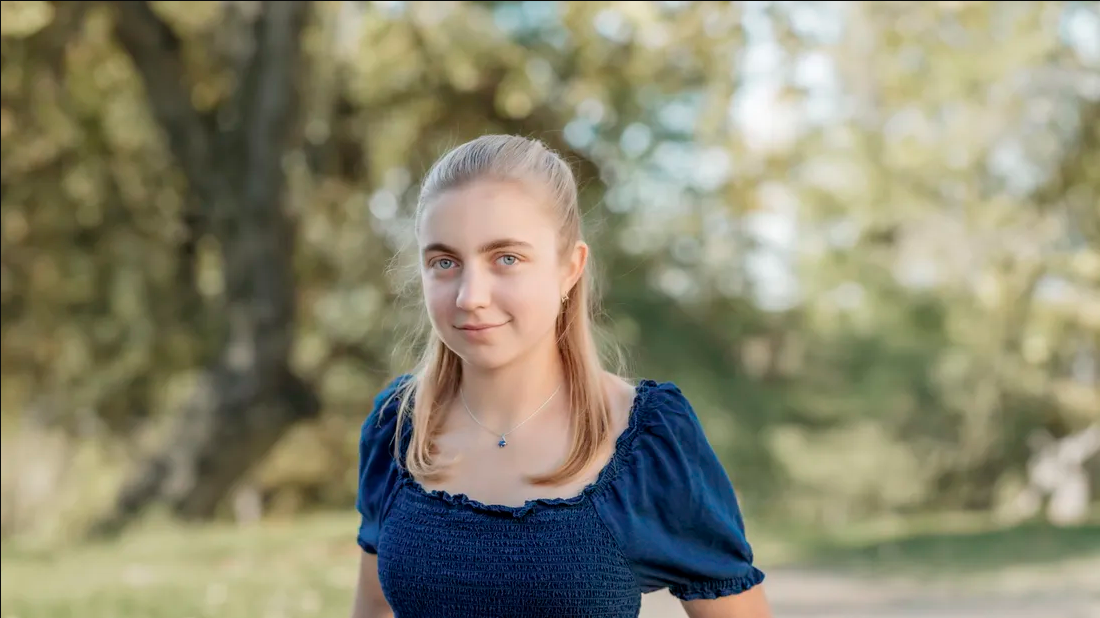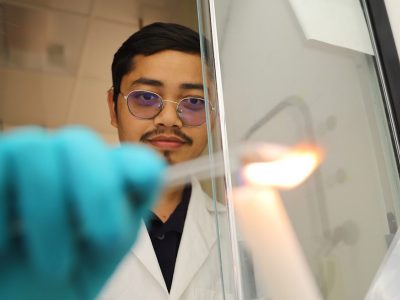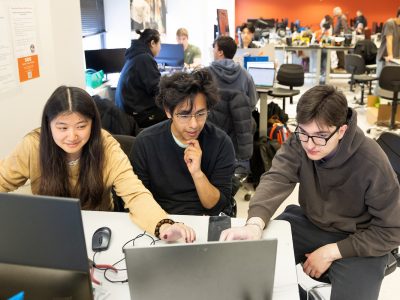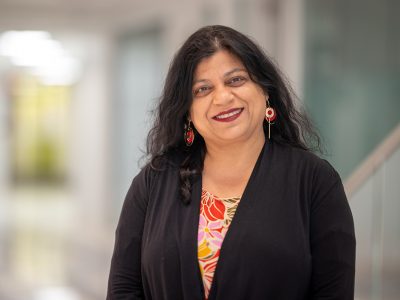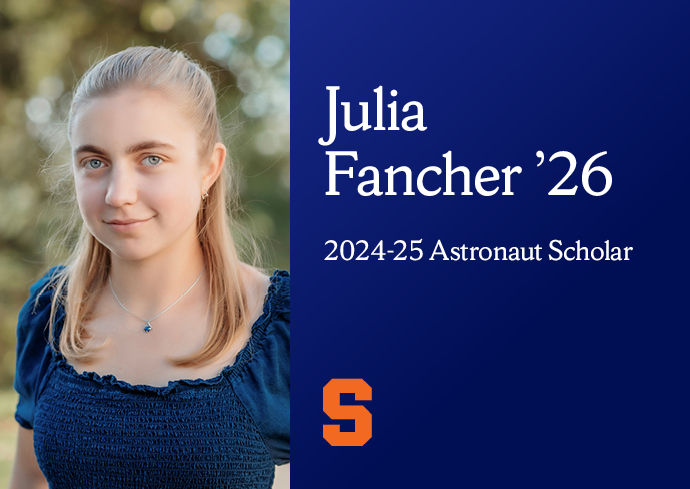
Julia Fancher, a rising senior majoring in physics and mathematics in the College of Arts and Sciences (A&S), a logic minor in A&S and a member of the Renée Crown University Honors Program, has been renewed as an Astronaut Scholar for the 2025-26 year by the Astronaut Scholarship Foundation (ASF). She was originally named as a 2024-25 Astronaut Scholar.
Founded by the Mercury 7 astronauts, the foundation awards scholarships to students in their junior or senior year who are pursuing a science, technology, engineering or mathematics (STEM) degree with intentions to pursue research or advance their field upon completion of their degrees. Astronaut Scholars are among the best and brightest minds in STEM who show initiative, creativity and excellence in their chosen field.
The Astronaut Scholarship includes funding of up to $15,000 toward educational expenses, a paid trip to the ASF Innovators Week and Gala in Houston in August, and lifelong mentoring and engagement opportunities with astronauts, Astronaut Scholar alumni, industry leaders and the ASF.
“My Astronaut Scholar experience so far has been amazing,” Fancher says. “I have met so many new people, and they have been a wonderful support system both in terms of research and general life advice. My Astronaut Foundation mentor has always been willing to help with scientific writing and similar skills, which I greatly appreciate.”
Fancher became immersed in research as a first-year student at Syracuse. She joined the high-energy astrophysics lab of Eric Coughlin, assistant professor of physics. Under Coughlin’s guidance, Fancher researches tidal disruption events (TDEs), astrophysical transients that occur when a star is destroyed by the tidal field of a black hole. She uses a combination of numerical simulations and analytical methods to accurately model TDEs, which reveal properties of distant galaxies. She has published and presented nationally, and her work could have implications for how observational data from TDEs is interpreted and could lead to new insights into distant black holes and stellar populations in galactic centers. She submitted a new paper last week (as first author) detailing her continued research on TDEs conducted with Dr. Coughlin, and she intends to begin a new project in the near future.
After graduating from Syracuse, Fancher plans to enroll in a doctoral program that focuses on computational and analytical astrophysics, with the goal of joining a research university or national laboratory to conduct research in theoretical high-energy astrophysics.
“I aim to build my own astrophysics lab focusing on discovering possible mechanisms of observed astrophysical transients through a combination of analytical methods and computational modeling,” Fancher says.
Created in 1984, ASF awarded its first seven scholarships in honor of the Mercury 7 astronauts—Scott Carpenter, Gordon Cooper, John Glenn, Virgil “Gus” Grissom, Walter Schirra, Alan Shepard and Deke Slayton. Seven students received $1,000 scholarships. To fundraise and support future scholarships, the founders ̶ which included the six surviving Mercury 7 astronauts, Betty Grissom (Gus’s widow), Dr. William Douglas (the Project Mercury flight surgeon) and Henri Landwirth (an Orlando businessman and friend) ̶ began donating proceeds from their speaking engagements. The incredible efforts of these legends have shaped ASF’s mission to support and reward exceptional college students pursuing degrees in STEM. Forty years later, more than $9 million has been awarded to more than 800 college students.
As a university partner of the Astronaut Scholarship Foundation, Syracuse University can nominate two students for the Astronaut Scholarship each year. Interested students should contact CFSA for information on the nomination process (cfsa@syr.edu; 315.443.2759). More information on the Astronaut Scholarship Foundation can be found online.
